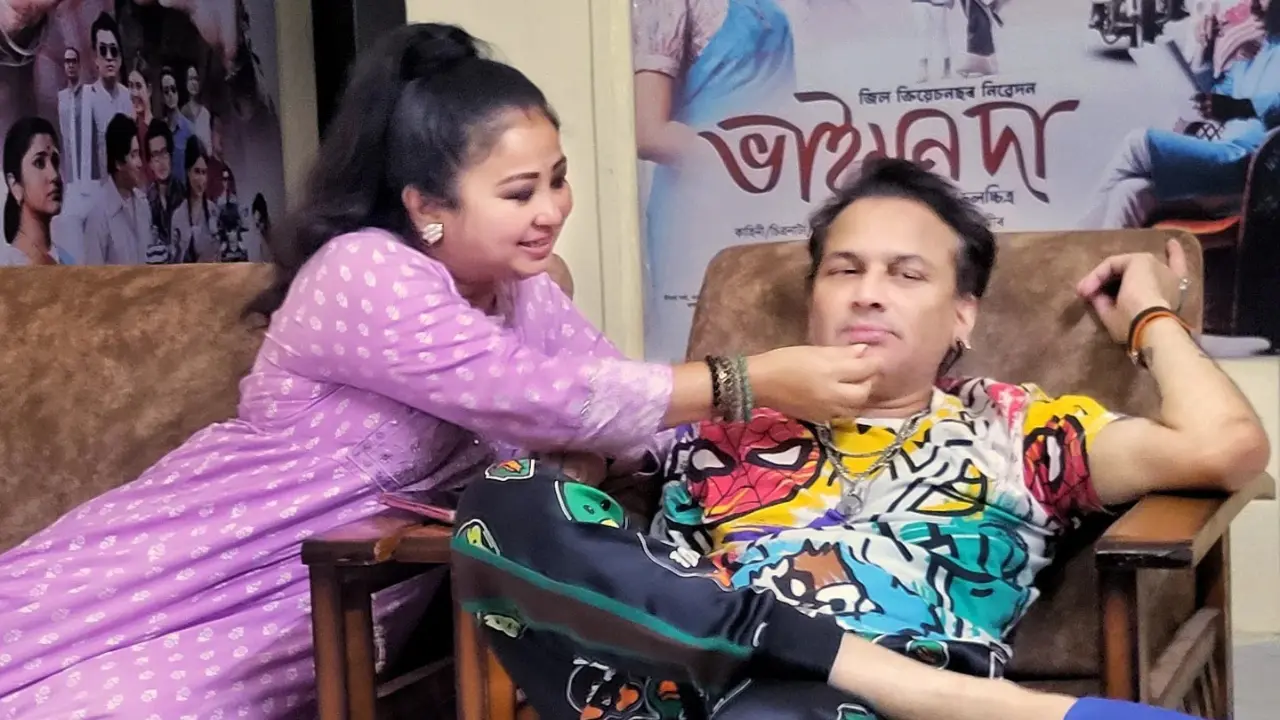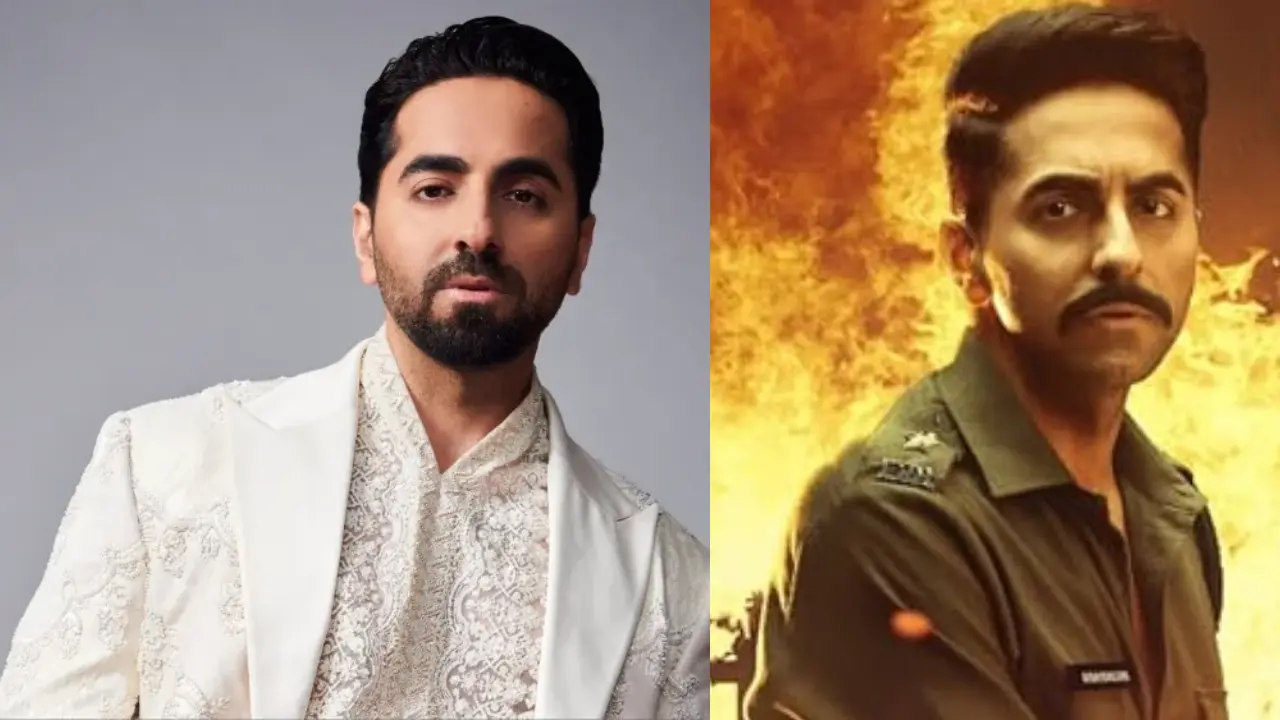Homebound
Director: Neeraj Ghaywan
Actors: Ishaan Khatter, Vishal Jethwa, Janhvi Kapoor
Rating: 4 stars
The starting point of this film, I’m told, was once a photograph, doing the rounds on social media. Which led journalist Basharat Peer to dive deeper into its origins and write a piece for the opinion page of The New York Times (NYT).
It was titled, ‘A Friendship, a Pandemic and a Death Beside the Highway: How a photograph of a young man cradling his dying friend sent me off on a journey across India,’ datelined July 31, 2020, Devari [village], India.
If you aren’t into viewing trailers of films you’re gonna watch, anyway — the first impression of a movie is also, usually, a picture. That is, its poster.
In this case, of actor Vishal Jethwa piggybacking on the fellow lead, Ishaan Khatter, while they’re presumably on a playing field — pointing their forefingers upwards, as if having dismissed a batter in cricket.
Either my memory doesn’t serve me right for reasons that there’s so much to remember about this film — I don’t think that scene exists, as is, in the picture, per se.
But the same shot, over a long passage, in an altogether different setting, acquires a completely different meaning/significance as you step out of this film.
It could move you to tears, or it’ll trigger thoughts about a human tragedy that people in general, I notice, have collectively repressed. I guess, that’s how we move on, for better or worse. It helps, sometimes, to poignantly pause, and ponder.
There are also various images in Homebound that draw you in, the same way.
Consider, in particular, the camera unsparingly staring at the face of young Ishaan, while his eyes well up, and face lights up, from the computer screen, where he’s searching for the results of a police recruitment exam.
That lingering static shot achieves more depth in a few seconds than most actors might deliver through an entire movie.
Take a relatively more unsubtle sequence, if you may. Wherein Ishaan’s character finds himself getting low-key trolled at an office party, celebrating victory in an India-Pakistan cricket match.
The lightly dramatic crescendo in that scene, where he eventually pushes back, is for keeps. Ishaan is easily the star on this show, right off a regal pin-up’s part (in the Netflix series, The Royals).
He plays an underprivileged Muslim youth, Mohd Shoaib, trapped in a cycle of rejection and unemployment. Likewise, his best friend forever, Chandan Kumar (Vishal; powerfully restrained), belongs to the Dalit/‘untouchable’ caste.
Both define brotherly love and friendship that make life somewhat bearable. Everything else in their world — job, exams, relationship — seems equated to “war”.
As if struggles and dejection from lack of hope for a better future isn’t terrible enough — they go through humiliation on account of their religion/caste, alongside. I suppose discrimination of some sort or the other is as old as humans.
What’s a personal antidote to it? Unpretentious art, and smartly crafted storytelling, I suppose. Nothing combines both as effectively as the empathy-generating cinema.
Take the intellectual impact of Basharat’s piece on BFFs, Mohd Saiyub, 22, and Amrit Kaur, 24, in the NYT. Just compare it to director Neeraj Ghaywan’s gut-wrenchingly emotional, viscerally stirring script/film inspired by it.
They’re miles apart. You’ll know the difference. This is Ghaywan’s second feature since his notable debut, Masaan (2015), a decade ago. Which, as a story, was much broader in scope, with Banaras in the centre.
It’s still hard for me to forget the evocative opening sequence of Masaan, with cops breaking into a motel, and a couple inside, caught in a private/intimate moment. It hit you like a hammer in Dolby sound.
I’m gonna equally remember the quiet introductory scene of Homebound, with Shoaib and Chandan, stepping into a railway station, crowded with young people. As if heading to a pilgrimage, or a concert (same thing).
They meet another young girl, Sudha Bharti (Janhvi Kapoor, sufficiently convincing in a short role). Only, this is a vast pool of competitive hopefuls, for a comparably lowly job in the constabulary.
We’ve read/heard such statistics, as we do in this pic, that 2.5 million apply for 35,000 vacant seats. Somehow, putting faces to those numbers makes it immediately real.
For, what exit route does one have, to escape the ignominy of caste (even religion, language, gender, for that matter), in the case of the girl, and the boys, than to find some space in the society’s power structure, after all. Government jobs seamlessly offer that.
Few Indian directors have shone a harsher light on caste than Neeraj (including his short film, Geeli Pucchi, from the Netflix anthology, Ajeeb Daastaans, 2021).
Especially, given how caste has been a blind-spot in Hindi cinema, over a century, with few fine exceptions. What with mainstream heroes traditionally surnamed Kumar to altogether avoid a touchy subject.
Generic Kumar is also what the lead Vishal’s character goes by. No such luck for Shoaib, who takes up a salesman’s job in Homebound, hawking a water-purifier that, as a contraption, looks quite similar to what Will Smith struggles to sell in The Pursuit of Happyness (2006).
What’s compellingly common between the two films is how effortlessly they make audiences conscious of their own privileges. Also, engagingly, read: entertainingly — in ways that few things can, in about two hours flat.
For what might be the second time (after Amit Masurkar’s Newton, 2017) that it’s happened, right before a movie’s release — Homebound got picked as India’s official entry to the ‘Best International Film’ Oscars.
Which, basically means, merely one thing. That a jury, across multiple languages, deemed it the year’s best Indian film, thus far. Think, I agree.











